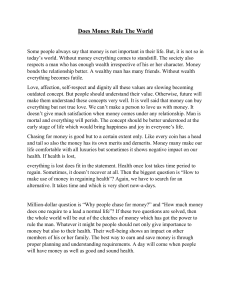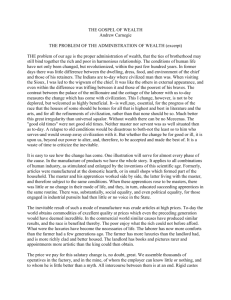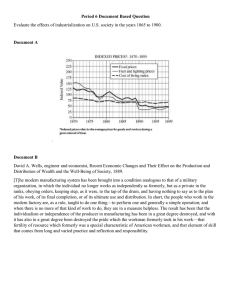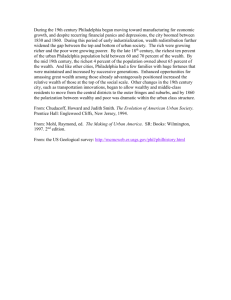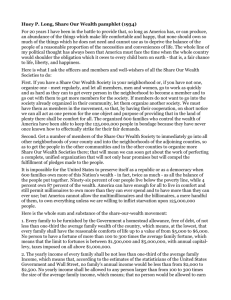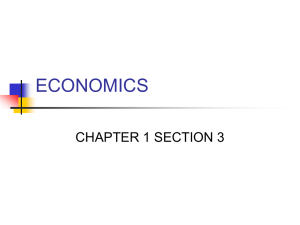The Gospel of Wealth
advertisement
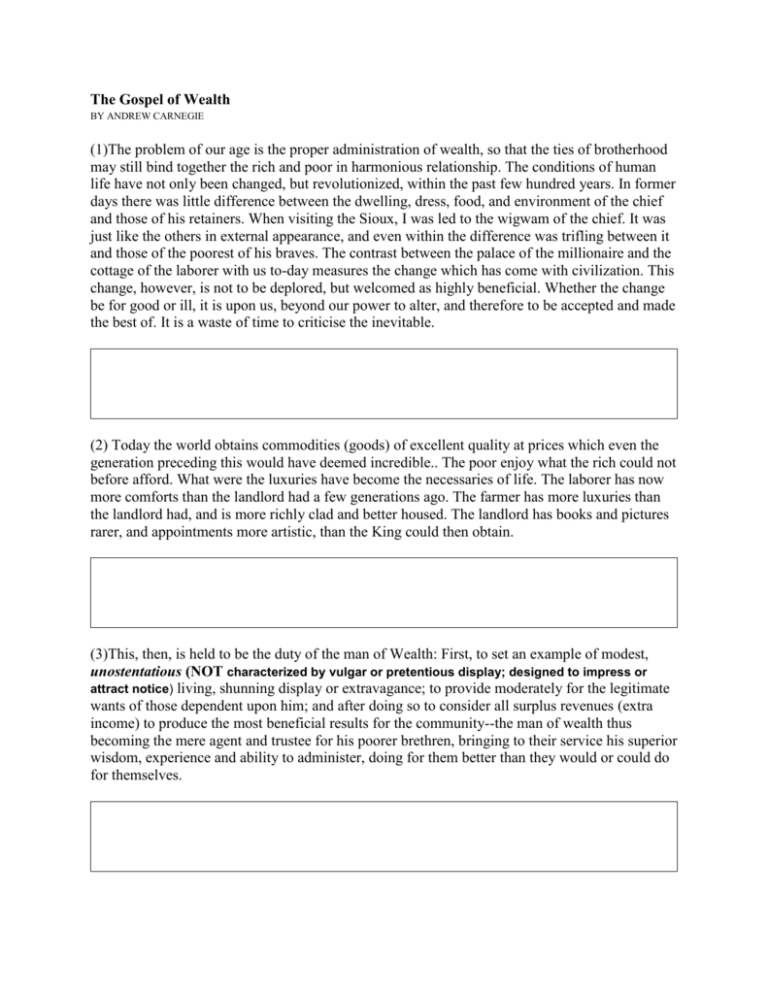
The Gospel of Wealth BY ANDREW CARNEGIE (1)The problem of our age is the proper administration of wealth, so that the ties of brotherhood may still bind together the rich and poor in harmonious relationship. The conditions of human life have not only been changed, but revolutionized, within the past few hundred years. In former days there was little difference between the dwelling, dress, food, and environment of the chief and those of his retainers. When visiting the Sioux, I was led to the wigwam of the chief. It was just like the others in external appearance, and even within the difference was trifling between it and those of the poorest of his braves. The contrast between the palace of the millionaire and the cottage of the laborer with us to-day measures the change which has come with civilization. This change, however, is not to be deplored, but welcomed as highly beneficial. Whether the change be for good or ill, it is upon us, beyond our power to alter, and therefore to be accepted and made the best of. It is a waste of time to criticise the inevitable. (2) Today the world obtains commodities (goods) of excellent quality at prices which even the generation preceding this would have deemed incredible.. The poor enjoy what the rich could not before afford. What were the luxuries have become the necessaries of life. The laborer has now more comforts than the landlord had a few generations ago. The farmer has more luxuries than the landlord had, and is more richly clad and better housed. The landlord has books and pictures rarer, and appointments more artistic, than the King could then obtain. (3)This, then, is held to be the duty of the man of Wealth: First, to set an example of modest, unostentatious (NOT characterized by vulgar or pretentious display; designed to impress or attract notice) living, shunning display or extravagance; to provide moderately for the legitimate wants of those dependent upon him; and after doing so to consider all surplus revenues (extra income) to produce the most beneficial results for the community--the man of wealth thus becoming the mere agent and trustee for his poorer brethren, bringing to their service his superior wisdom, experience and ability to administer, doing for them better than they would or could do for themselves. (4)We are met here with the difficulty of determining what are moderate sums to leave to members of the family; what is modest, unostentatious living. There must be different standards for different conditions. The answer is that it is as impossible to name exact amounts or actions as it is to define good manners or good taste. Public sentiment is quick to know and to feel what offends these. So in the case of wealth. The rule in regard to good taste in the dress of men or women applies here. Whatever makes one conspicuous (stand out) offends the canon (rule). If any family be chiefly known for display, for extravagance in home, table, equipage, for enormous sums ostentatiously spent in any form upon itself, if these be its chief distinctions, we have no difficulty in estimating its nature or culture. (5)In bestowing charity, the main consideration should be to help those who will help themselves; to provide part of the means by which those who desire to improve may do so; to give those who desire to use the aids by which they may rise; to assist, but rarely or never to do all. Neither the individual nor the race is improved by alms-giving. Those worthy of assistance, except in rare cases, seldom require assistance. Everyone has, of course, cases of individuals brought to his own knowledge where temporary assistance can do genuine good, and these he will not overlook. For in alms-giving more injury is probably done by rewarding vice. (6)Thus is the problem of Rich and Poor to be solved. The laws of accumulation will be left free. Individualism will continue, but the millionaire will be but a trustee for the poor; intrusted for a season with a great part of the increased wealth of the community. The man who dies leaving behind many millions of available wealth, which was his to administer during life, will pass away " unwept, unhonored, and unsung," no matter to what uses he leaves the dross which he cannot take with him. Of such as these the public verdict will then be: "The man who dies thus rich dies disgraced."
